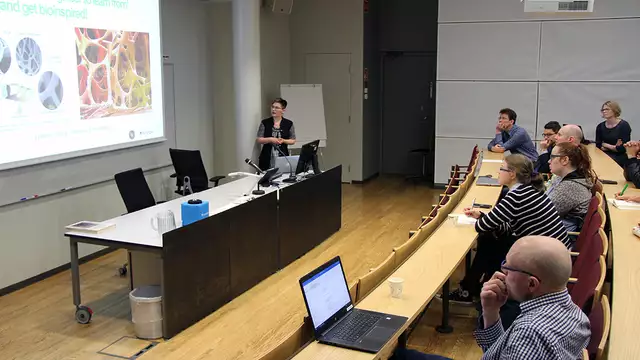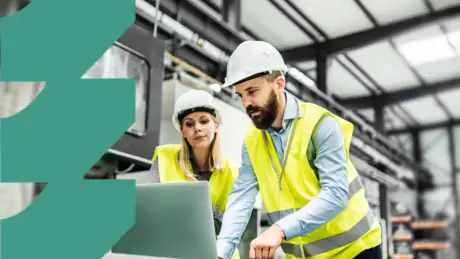
Sustainable development, cleantech and resource awareness are the focus of Arcada’s new Teknetium project. The project started with a kick-off seminar, where students, staff, alumni and working life representatives gathered to discuss sustainable development in engineering programmes.
The purpose of the Teknetium project, which will last for three years, is to develop the degree programmes in the field of energy and materials technology and to strengthen an environmentally friendly way of thinking among Swedish-speaking engineers. The project is funded by Svenska Folkskolans Vänner.
‘Climate change has progressed faster than we previously thought, and the consequences will be greater than we might have realised. Efforts so far have not been sufficient, and now the environmental aspect needs to be given even more attention in our engineering programmes’, Arcada’s Research Advisor Michael von Boguslawski explains.
Teknetium will continue until 2019, and we are currently starting work on developing new teaching materials, both digital materials and materials for on-campus studies. The idea is to develop new solutions and make use of previous research and projects at Arcada and within the field.
‘We need new, pedagogical solutions for research and development projects in the field in order to give our engineers sustainable values’, says Mikael Paronen, Head of the Department of Energy and Materials Technology.
A further goal is to find new partners both in the Nordic countries and in Europe in order to be able to make use of different skills and strengths in the development of Arcada’s engineering programmes.
‘In addition to external cooperation networks, we will focus on a continuous dialogue with the students. Their feedback is valuable and will help us take the project in the right direction. We will also continue to expand our cooperation with companies currently working in the industry’, says Project Manager Mirja Andersson, who is also the Degree Programme Director for the Materials Processing Technology programme.
The importance of global networks will increase, as technological development means that new knowledge arises and spreads faster than ever before. This means that prospective engineers need to understand and be able to quickly absorb and interpret large amounts of information.
‘We need to give our students the skills they need to cope with today’s changing world and work environment. Instead of being intimidated by the potential threats of the future, our students should feel ready to tackle them’, Andersson says.
During the seminar, Mirja Andersson and Mikael Paronen introduced the project and the engineering programmes at Arcada. The other speakers were Markku Oksanen from the University of Eastern Finland, Reetta Anderson from Fortum Waste Solutions and Kristo Lehtonen from 3D Bear.


